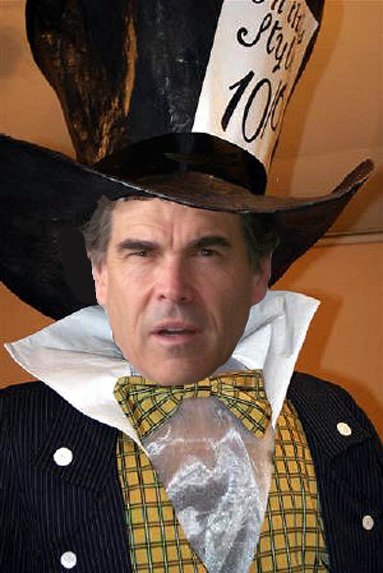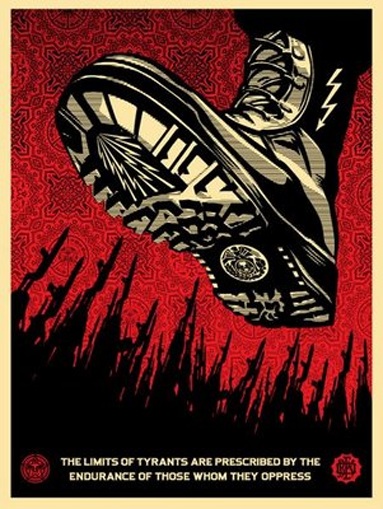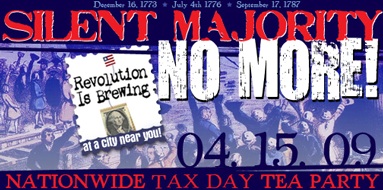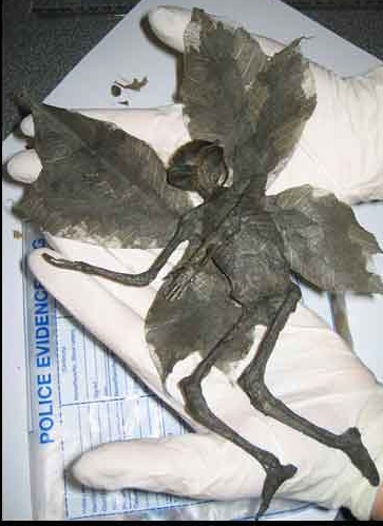Texas for Sale
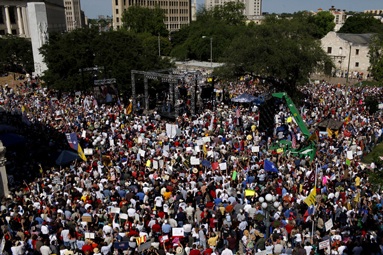 TURF Founder, Terri Hall's, address at the San Antonio Tea Party
TURF Founder, Terri Hall's, address at the San Antonio Tea Party 4/15/09
Terri Hall
Texans Uniting for Reform and Freedom
Copyright 2009
I think the words of a patriot of the past, Thomas Paine, that were uttered in 1776, reflect where we find ourselves again today in America.
He said:
“THESE are the times that try men’s souls. The summer soldier and the sunshine patriot will, in this crisis, shrink from the service of their country; but he that stands by it now, deserves the love and thanks of man and woman.
Tyranny, like hell, is not easily conquered; yet we have this consolation with us, that the harder the conflict, the more glorious the triumph. What we obtain too cheap, we esteem too lightly: it is dearness only that gives every thing its value.”
Is that not so true today?
Fellow Patriots, the Trans Texas Corridor and the widespread proliferation of toll roads, particularly the use of public private partnerships to exploit the eminent domain powers of govt and join it with the financial self-interest of private corporations, is nothing more than an all-out assault on our freedom: the freedom to travel, the freedom to own private property, and the freedom from oppressive taxation and overbearing government. And that, my friends, is tyranny! Though not easily conquered, it can and must be crushed.
The NAFTA Superhighway, known as the Trans Texas Corridor (or TTC for short) to Texans and called a myth by those trying to silence the truth, is very real and even has some segments already under construction. It’s a 4,000 mile, multi-modal network of toll roads, rail lines, utilities, telecommunications, and pipelines of all sorts. It will be up to 1,200 feet wide (4 football fields wide) and will take a total of 580,000 of private land. Two foreign companies partnering with an American company have been given the rights to develop the TTC, which includes the right to build the most lucrative segments without being subjected to competitive bidding, leaving the taxpayers to subsidize the parts that aren’t toll viable.The TTC will literally bisect whole cities and towns slicing them in two, giving residents, farmers, and schoolchildren no access to the other side of this 1,200 foot wide tollway. In fact, the law states the private operator only has to build overpasses where the corridor intersects state hwys and interstates. So on TTC-35 there are only 5 exits in the entire state of Texas!
So make no mistake, this nightmare called the TTC is alive and well. We’ve personally attended most all of the nearly one hundred TTC hearings since 2006. When more than 40,000 Texans have gone on record against it, politicians take notice. But instead of KILL this nightmare; they try to find new ways to put lipstick on their pig.Last year, there was an announcement disguised as a victory, where the Texas Department of Transportation, or TxDOT, said it would now expand existing highways (primarily Hwy 59) to build TTC-69, instead of building a massive new corridor through rural Texas.
But guess what? There’s always a catch when billions of dollars are to be made, and when multi-national corporations are chomping at the bit to get their cheap Chinese goods into the U.S. exploiting cheaper Mexican ports, trucks, and labor. Let me read to you what the winning bidder, ACS of Spain, said was the purpose of this corridor: “The TTC-69 will connect the Mexican border with the Gulf of Mexico coastline, Houston and major industrial and logistics centres in Texas with the north of the country. …ACS (and its partner) the Texan concessionaire Zachry American Infrastructure, have become the successful bidders for the design, planning and development, as strategic partners of…TxDOT, of the TTC-69 infrastructure corridor for the next 50 years.” The purpose for these corridors is international trade, not congestion relief as our politicians claim, and they have no intention of killing their plans to build these trade routes at Texans’ expense.Oh they’ll tell you your free lanes will still be there, but they’re fixin’ to do to freeways here in San Antonio (281 &1604) and that is,
toll the existing freeway lanes and make the only free lanes, frontage roads. Calling it highway robbery is no exaggeration!It’s a DOUBLE TAX to charge us again for what we’ve already built and paid for. Concerned citizens through TURF have also been on the front lines fighting the use of stimulus money to build toll roads in yet another DOUBLE TAX scheme.
The Transportation Commission voted to use 70% of the federal stimulus funds to build toll roads, yet you’ll have to pay another tax, a toll tax, to drive on them! Within TWO weeks of TxDOT’s announcement that it’ll use existing roads for TTC-69, TxDOT signed the public private partnership contract with ACS of Spain and Zachry of San Antonio that gives them 12% guaranteed annual profits, a no-bid right to cherry-pick the most lucrative segments to profit from, and they’re not even bringing their own money to the table since 3/4 to 100% of the construction cost will be paid for with YOUR MONEY…that’s right, Texas lawmakers are stealing gas taxes, and public bonds and loans to build the NAFTA superhighway but they’ll charge you again and again to drive on it and give all the profits to Zachry and ACS of Spain!On January 6 of this year, TxDOT also announced that its
renaming the TTC, “Innovative Connectivity” Plan, because 40,000 Texans stood-up against the Trans Texas Corridor. Now they try to fool us by giving this detested project another fancy name, which in reality is just more lipstick for their pig!
We’ve been brow beat with a pack of empty talking points by think tanks and government alike, that these public-private toll deals are free market, and the silver bullet to funding infrastructure without having to raise taxes, because the private partners bring all the money to the table, not cash-strapped govt, and it’s the private partner, not the taxpayers, who carry the financial risk, they’ll say.
Well, all you have to do is dig into any one of the 5 contracts in TX and those in other states (Indiana, Illinois, Florida, and Virginia) to know that not one of those things is true. First of all, a toll is a tax, and, in the case of public-private partnerships, it’s a tax in the hands of corporations, not elected officials! Try 75 cents a mile on for size. That’s the published toll rate Cintra, also based in Spain, will charge on two projects inked just weeks ago in Dallas Ft. Worth. Second, there is no risk to the private operator when the taxpayers are subsidizing these projects with HEAPS of public money, including gas taxes, and when the state grants investors a non-compete agreement that prohibits the expansion and construction of free roads that “compete” with their tollways, they can guarantee congestion on the free lanes for a half century or more.When these sweetheart deals fail, like we’ve seen with the mortgage crisis and the subsequent global financial meltdown,
it’s the taxpayers on the hook for the debt, not these global corporations.One contract even gives TxDOT a financial incentive to lower the speed limit on the competing “free” interstate, I-35, to drive more traffic to the high speed Trans Texas Corridor,
Our government has become the puppet of private industry and they’ve figured out how to team-up to make billions off the public’s roadways. These highways belong to WE THE PEOPLE, not the government, not the road lobby. They have NO right to steal our land in the name of “public use” when it’s really about private gain and big government profiteering that will relegate those who cannot afford the tolls to second class citizens. Eminent domain has always been used for roads, but now for the first time, the government can literally steal your land, pay you next to nothing for it, and give it to a private company for private profit.
It’s the Kelo vs. New London case wrapped up in a different colored bow applied to roads. In Texas, they even passed a law, called quick take, that allows the govt to vacate the landowner within 90 days of notice of condemnation whether or not your case is settled. This almost guarantees the landowner will have to take the state’s offer, because who can re-locate hundreds of head of cattle in 90 days without compensation? There is a massive war going on in this country between the pro-privatization special interest groups and freedom-loving Americans. The laws have already been dramatically altered to allow these public-private partnerships, and politicians have orchestrated a shift away from an affordable, gas tax funded freeway system to a new policy of prolific and oppressive toll taxation. They’re planning to toll the living daylights out of urban commuters in order to give their cronies government-sanctioned monopolies over YOUR roads that you depend for daily living.We experienced uncharted territory when gas hit $4 a gallon last year, above the inflation-adjusted high of 1980. We’re back up to $2.00 a gallon right now. The mentality inside the beltway and in Austin is that no matter what they decide to charge us in new toll taxes, that motorists will pay it. They know we have to get to work. We won’t have real alternatives.
This is oppressive taxation on top of skyrocketing fuel costs. There’s only so much money in the family budget that can go to transportation before it takes money away from the necessities. We already see the dramatic decline of the standard of living in America in a very short period of time.
It’s only going to get worse, they tell us, in order to condition us into accepting the globalists’ agenda.
Toll roads ultimately chop up our public freeways into a two-tiered highway system; one for those who can afford thousands a year in new toll taxes, and another one those who can’t. And those who can’t afford the toll roads will become second class citizens stuck in congestion while still paying gas taxes, and will also face the reality of having their freeways downgraded to access roads. This is not only UN-Texan, it’s UN-American!So isn’t this what we’re conditioned to accept in government? We’re endlessly being asked to tighten OUR belts, while both our state and federal governments siphon-off our gas taxes for diversions that don’t even pertain to roads, and squander the rest on frivolous earmarks, like the bridge to nowhere?
How about TxDOT spending $9 million of taxpayer money to wage an ad campaign to advocate tolls roads and the Trans Texas Corridor? TURF filed a complaint with the Travis County District Attorney’s office immediately upon learning of this illegal use of taxpayer money. The DA’s office did nothing. So we filed a lawsuit in civil court to stop TxDOT from spending anymore of our money on taxpayer-funded lobbying.- Through our lawsuit we’ve discovered that indeed TxDOT has been engaging in illegal lobbying. They can’t say they’re not lobbying when invoices show they’ve hired 5 registered lobbyists to the tune of $100,000 a month to lobby elected officials in Texas and in Washington, particularly targeting local elected officials in the path of the Trans Texas Corridor.
- We found documents that show the purpose of the ad campaign is to “neutralize” toll and TTC opponents and to target counties opposed to the TTC in order to turn the tide of opposition.
- PR firm stated: “The political environment needs to be changed to make it less hostile to the TTC.” The goal of the campaign is to define the benefits of the TTC to the majority of Texans and help inoculate it from negative attacks."
- They’ve conducted push polls on the taxpayers’ dime to garner support for the TTC.
- The testimony from someone in the State Auditor’s office found TxDOT knowingly ginned-up bogus funding shortfalls in order to push toll roads!
I’m afraid this doesn’t stop in Texas. Just last summer, a new lobby group called Transportation Transformation or T2 announced that not only TxDOT, but 3 other state DOTs have officially teamed up with the bond investors and private toll road and corridor interests to directly lobby Congress in Washington for more public private partnerships and toll roads.TURF has actively worked to effect change through the Texas Legislature for the last two sessions.
I was appalled at the level of corruption and outright contempt for the average citizen in Austin. When we go to testify for and against bills, we are literally the only ordinary citizens in the room. In fact, these hearing rooms are packed with lobbyists and even 3 & 4 rows deep of standing room only in the back.
Do you want to know why your phone calls and comments aren’t heeded in Austin? Because special interests and lobbyists run our government from the shadows. I like to call them the shadow government. We never elect them, and we have no influence over them at the ballot box. They exist solely for their own self-interest; to exploit you and I, the taxpayers, in order to increase our tax burden for their own benefit. It’s a feeding frenzy at the public trough.In a book by a friend and member of TURF’s Advisory Committee, Dr. Pat Choate called
Dangerous Business, the Risks of Globalization for America, he includes an entire section that lists page after page of elected officials turned lobbyists now making six figure + incomes lobbying their former colleagues in Congress for money, lots of it. And this is from just the last two Administrations. That’s why they don’t listen to us any longer, even if we are successful at booting them from office, they know that they and their families will be taken care of by the big money for the rest of their lives. It’s abundantly clear that our elected officials no longer represent us.
We have volunteers handing out an important flyer to you today that gives you a list of bills currently before the Texas Legislature, which is just a taste of the taxation free for all happening in Austin this very hour.
Last session, the Legislature placed a moratorium on these public private partnership toll road contracts, but it was a counterfeit moratorium since at least a dozen of the contracts were taken out of the moratorium as evidenced in the two just signed and given to Cintra who will charge us 75 cents a mile to get to work!The Texas Senate just passed two horrific bills last week: one to re-authorize the private toll contracts that sell our highways to the highest bidder, and the other to allow counties to levy a litany of local taxes on everything that moves like:- an impact fee for new residents
- a tax on passenger vehicles
- a vehicle registration tax
- a tax on every mile driven (with no limit)
- a congestion tax for "high congestion areas during peak hours" (in addition to their plan to toll those areas!)
- an emissions tax and even
- a tax on a parking space.
And that’s not counting other transportation taxing zones that come after your property taxes, too! These are just two of over 400 transportation bills, dwarfed by the grand total of 7,000 bills working their way through the Legislature.
One would create an entire state agency that does nothing but write these public private partnership contracts! We cannot afford to bury our heads in the sand or simply wish it all goes away. We need your help to stop this runaway taxation and threat to our freedom to travel!WE MUST TAKE OUR GOVERNMENT BACK! We need to fight for elected representatives who are public SERVANTS and statesmen,
not self-absorbed politicians who exploit those they are elected represent. That means some of you need to be willing to run for public office. All of us need to support candidates who value the Constitution more than winning re-election, and we all MUST get involved in the political process in some way in order to preserve our precious Republic for future generations. We need leaders who take an oath to always put the public interest above special interests, principle over Party, and values over what’s politically expedient.It all starts with educating ourselves and our children on the Founders, their lives, and the principles and they fought and died for in order to establish a country based on self-governance, set apart from those before her and after her that still stands as a City on a Hill today, like in this book, For You They Signed, by Marilyn Boyer, that has character studies on the lives of the signers of the Declaration of Independence.
We need a new generation of patriots willing to mutually pledge our lives, our fortunes, and our sacred honor to once again establish a free Republic for OUR posterity! We must demand fundamental reform to ensure checks and balances and to put the power back in the hands of the PEOPLE as the 10th Amendment to the U.S. Constitution guarantees a free people. If we don’t, our government is on track to bankrupt us and future generations.
So I ask you, have we had enough? I cannot help but be inspired by the resolve of another patriot, Patrick Henry, who said in his famous speech that sparked a revolution:
“Is life so dear or peace so sweet as to be purchased at the price of chains and slavery? Forbid it, Almighty God! I know not what course others may take, but as for me, give me liberty or give me death!”
We need to ask ourselves, will we allow our government to shackle us with oppressive taxation just to get to work and go about daily living? Will we allow our government to carve a 1,200 ft wide swath through the heartland of America and sacrifice private property rights in the name of foreign trade and commerce?
Or will we continue to fight a new revolution, a taxpayer revolt, a political movement to stop the sale of America’s freeways to the highest bidder on Wall Street, to stop tolls across Texas and America, protect our right to own property without fear of government abuses, and preserve our way of life and our precious freedoms bought with a price from those who came before us?They, those who have sold out American freedom in favor of the almighty dollar and the intoxication of power, aren’t counting on you and me and this freedom movement taking our government back. But as for me, and I think all of you here today and the hundreds of thousands who couldn’t be with us, the resounding answer is: give us liberty!May this event spark a movement of ordinary citizens from all walks of life and all political stripes who have had enough of abusive, overbearing government and who see the dire necessity to change course. We stand at a crossroads, and may this day, April 15, 2009 mark a turning point back to Constitutionally-restrained government, and one that’s OF THE PEOPLE, BY THE PEOPLE, and FOR THE PEOPLE!
We invite you to get involved and join us on the frontlines of a taxpayer revolt to preserve our freedom to travel by visiting our table right next to the KSLR and WOAI booths to the right of the stage or going to the Texas TURF.org web site. No one else can do it for us; we MUST do this ourselves. Government certainly doesn’t fix itself. We often feel like Peter, the little Dutch boy who had his finger in the crack of the dike and held back certain disaster for his homeland. We need more people in this fight. It will take a Texas-sized tax revolt to stop the assault on our freedom and prosperity.
But most importantly, never give up, do not falter, and NEVER waver in the cause of liberty. If this one homeschool mom can start a movement that spread across this state to influence the Texas Legislature, all the way to Washington D.C., and recently even to Denmark, so can each and every one of you. Thank you and may God bless and preserve what our Founders’ inherently knew was a fragile Republic, the United States of America!
© 2009 TURF:
www.texasturf.orgTo search TTC News Archives click HERETo view the Trans-Texas Corridor Blog click HERE

